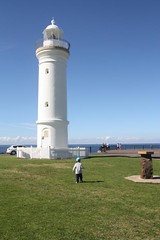'I lift up my eyes to the hills— where does my help come from? My help comes from the LORD, the Maker of heaven and earth. He will not let your foot slip— He who watches over you will not slumber.' Psalms 121:1-3
Adam’s nakedness indicates a certain vulnerability and helplessness. He stretches his hand as if to turn for refuge and direction; very dependent on God. The hymn ‘Lord I Stretch My Hands to You’ by Jay Althouse with lyrics adapted from Charles Wesley, succinctly described the vulnerability-dependency realities of the man-creator relationship.
Lord, I stretch my hands to You
No other help I know,
If You should leave me all alone,
Where then shall I go, O Lord.
Lord, I stretch my hands to You
Oh Lord. I give my soul to You
I seek Your care and love.
No other blessings do I need
but those from You above.
Lord I ask You:
Give me faith, and help me understand.
And Lord, when I this life shall leave
Just hold me in Your hand.
In God we will find abundance but unfortunately, many of us fail to recognise this. We want to assert our independence and in so doing, we lose sight of God. What a pity! We withdraw our hands and go our separate ways. In this zealousness to break free, we become blind to our spiritual inheritance and lose the wisdom of God’s counsel.
God's hand, however, remains outstretched.
In my lifetime, I have never experienced such dark times affecting the whole world as in these days when the Corona virus ravage the world. The old and those with chronic illnesses are the most vulnerable and it is as if, we are walking through the valley of the shadow of death. This is not the time to turn away from God but to keep our hands outstretched towards God to find strength and comfort.
God's hand, however, remains outstretched.
In my lifetime, I have never experienced such dark times affecting the whole world as in these days when the Corona virus ravage the world. The old and those with chronic illnesses are the most vulnerable and it is as if, we are walking through the valley of the shadow of death. This is not the time to turn away from God but to keep our hands outstretched towards God to find strength and comfort.
'I will lead the blind by ways they have not known, along unfamiliar paths I will guide them; will turn the darkness into light before them and make the rough places smooth. These are the things I will do; I will not forsake them.' Is 42:16
Philip Yancey in his book, ‘Finding God in Unexpected Places’ recounted this story, “Theologian John S Dunne tells of a group of early Spanish sailors who reached the continent of South America after an arduous voyage. Their caravels sailed into the headwaters of the Amazon, an expanse of water so wide the sailors presumed it to be a continuation of the Atlantic Ocean. It never occurred to them to drink the water, since the sailors presumed it to be saline, and as a result many of them died of thirst. That scene of men dying of thirst even as their ships floated on the world’s largest source of fresh water has become for me a metaphor of our age. Some people starve to death spiritually while all around them manna rots.”
'The poor and needy search for water but there is none, their tongues are parched with thirst. But I the LORD will answer them; I, the God of Israel, will not forsake them. I will make rivers flow on barren heights, and springs within the valleys. I will turn the desert into pools of water, and the parched ground into springs.' Is 41: 17-18
John’s Gospel recorded a gentle conversation between Jesus and a Samaritan woman; a woman looking for meaningful love and relationship.
'When a Samaritan woman came to draw water, Jesus said to her, “Will you give me a drink?” (His disciples had gone into the town to buy food.) The Samaritan woman said to him, “You are a Jew and I am a Samaritan woman. How can you ask me for a drink?” (For Jews do not associate with Samaritans.) Jesus answered her, “If you knew the gift of God and who it is that asks you for a drink, you would have asked him and he would have given you living water.” “Sir,” the woman said, “you have nothing to draw with and the well is deep. Where can you get this living water? Are you greater than our father Jacob, who gave us the well and drank from it himself, as did also his sons and his livestock?” Jesus answered, “Everyone who drinks this water will be thirsty again, but whoever drinks the water I give them will never thirst. Indeed, the water I give them will become in them a spring of water welling up to eternal life." John 4:7-13,
If only we all can recognize our lack of spirituality and wisdom! Then we would stretch our hands to God to establish a relationship that was meant to be from the dawn of time.
'I lift up my eyes to the hills— where does my help come from? My help comes from the LORD, the Maker of heaven and earth. He will not let your foot slip— He who watches over you will not slumber.' Psalms 121:1-3
Lionel
Lionel













